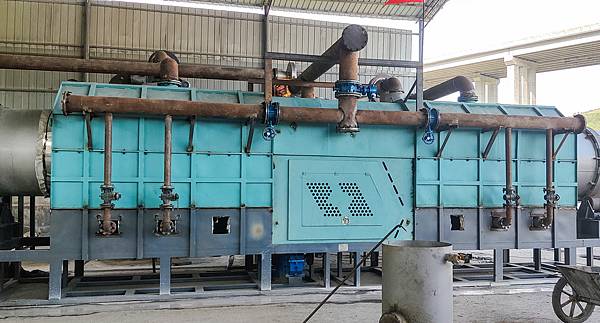In the intricate realm of sustainable energy solutions, the wood charcoal making machine emerges as a pivotal player, converting biomass into a valuable source of energy. Understanding the nuanced price structure of this technological marvel requires delving into various components that contribute to its overall cost.
Unveiling the Factors
Raw Materials and Feedstock
The foundation of the price structure lies in the raw materials utilized for charcoal production. The type and quality of wood feedstock significantly influence the machine's cost. High-quality hardwoods, known for their energy density, might incur a higher expense compared to softer wood variants. The wood charcoal making machine price is inherently linked to the raw materials it processes.
Pyrolysis Technology
At the core of the wood charcoal making process is pyrolysis – a thermochemical decomposition of organic materials in the absence of oxygen. The sophistication of the pyrolysis technology embedded in the machine plays a pivotal role in determining its cost. Advanced pyrolysis systems, equipped with precise temperature control and efficient heat recovery mechanisms, contribute to a higher overall expense.
Reactor Design and Capacity
The design intricacies of the pyrolysis reactor, coupled with its processing capacity, are integral components affecting the machine's price. Innovative reactor designs optimized for heat distribution and scalability often come at a premium. The wood charcoal making machine with larger processing capacities commands a higher cost due to its ability to handle larger volumes of feedstock.
Automation and Control Systems
Modern wood charcoal making machines integrate advanced automation and control systems to enhance operational efficiency. The inclusion of intelligent sensors, real-time monitoring, and automated process control adds sophistication to the technology but also contributes to the overall cost. The balance between manual and automated systems can influence the machine's price structure.
Environmental Compliance
In an era of heightened environmental awareness, adherence to emission standards and eco-friendly practices is non-negotiable. Incorporating state-of-the-art emission control systems and sustainable production practices might escalate the machine's cost. However, this investment aligns with global environmental commitments and positions the technology as a responsible choice.
Evaluating Cost Dynamics
Initial Investment vs. Operational Costs
While the upfront cost of a wood charcoal making machine is a significant consideration, evaluating the long-term operational costs is equally crucial. High-efficiency machines with lower energy consumption and minimal maintenance requirements may prove to be cost-effective in the operational lifespan, balancing the initial investment.
Return on Investment (ROI)
The economic viability of a wood charcoal making machine is intricately linked to the return on investment. Factors such as the market demand for charcoal products, the selling price of the produced charcoal, and the operational efficiency of the machine collectively contribute to determining the ROI. A well-calculated ROI analysis provides insights into the machine's financial feasibility.
Market Dynamics and Competition
The prevailing market conditions and competitive landscape play a pivotal role in shaping the pricing strategies of wood charcoal making machines. Market demand, technological innovations, and the presence of alternative energy solutions influence the equilibrium between supply and demand, impacting the machine's price positioning.

Strategic Considerations
Customization Options
Manufacturers often offer customization options for wood charcoal making machines to cater to diverse user requirements. Custom features, such as additional safety measures, specific feedstock compatibility, or specialized pyrolysis processes, may contribute to an adjusted price. Users seeking tailored solutions should factor in the cost implications of customization.
After-Sales Services and Support
The quality of after-sales services and technical support provided by the manufacturer forms an integral aspect of the overall value proposition. Machines accompanied by comprehensive warranties, responsive customer support, and readily available spare parts may command a higher price but ensure prolonged operational reliability.
Certifications and Compliance
Certifications attesting to the machine's compliance with international standards and regulations can influence its price. Machines adhering to safety standards, environmental regulations, and quality benchmarks often position themselves as premium choices, offering users confidence in their reliability and adherence to industry best practices.
Navigating Price Variations
Global and Regional Variances
The price structure of wood charcoal making machine exhibits variations influenced by global and regional factors. While global market dynamics impact the cost of key components like steel and technology, regional considerations, such as labor costs and regulatory frameworks, contribute to localized price fluctuations.
Technological Upgrades and Innovations
The continuous evolution of technology introduces upgraded versions and innovations in wood charcoal making machines. Newly integrated features, enhanced efficiency, and improved environmental performance may be accompanied by higher price points. Users looking to stay at the forefront of technological advancements should be prepared for potential cost escalations.
Future Trajectory
Sustainability and Affordability Nexus
As sustainability becomes a focal point in energy solutions, the future trajectory of wood charcoal making machines envisions a delicate balance between environmental stewardship and affordability. Technological advancements aimed at reducing costs without compromising performance are anticipated, paving the way for a more accessible and eco-conscious market.
In Conclusion
The intricate analysis of the price structure of wood charcoal making machines reveals a dynamic interplay of technological sophistication, raw material considerations, and market dynamics. As these machines continue to shape the landscape of renewable energy, a nuanced understanding of their pricing intricacies becomes essential for stakeholders seeking both economic and environmental value.


 留言列表
留言列表
